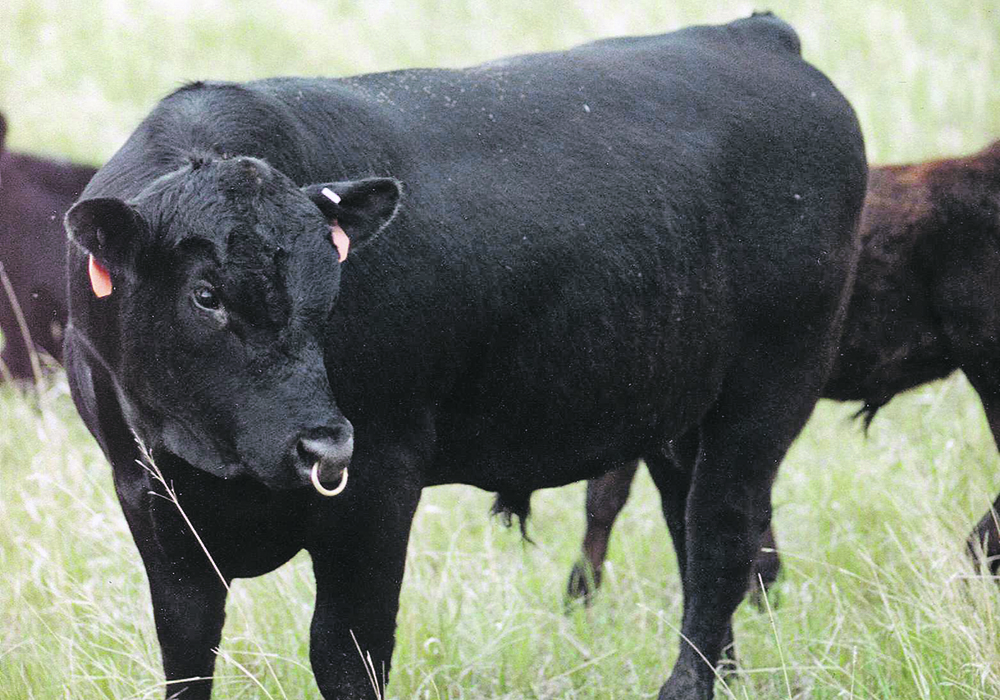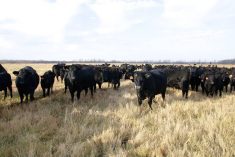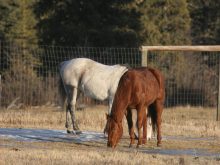Many bulls are bought early in the year when most bull sales are held from February to April.
For earlier sales, those occurring in December or January, purebred producers usually have semen evaluations carried out before bulls are delivered or picked up at the farm.
When is the gap too big between when a semen evaluation is done for a bull sale and the breeding season?
The semen evaluation is only reliable close to the date when breeding is done. A lot can happen between the evaluation date and breeding.
Read Also

Beef cattle more prone to trace mineral deficiencies
The trace mineral status of our cows and calves is a significant challenge for western Canadian producers and veterinarians.
Young bulls go through a lot in those few months. They mature, and the amount, concentration, motility and morphology of sperm, on average, improves at that age.
With bovine semen evaluation, we as veterinarians are looking for the outliers or those that don’t make the grade. There is always a percentage that go downhill after they initially passed the test. This can happen for a number of reasons.
Most times, if producers are evaluating their herd sires anyway, I would reevaluate the young bulls. Some veterinarians have a reduced rate for doing more than 10 bulls, for example, so cost isn’t significant. It is worth it to find the odd bull that has declined in sperm quality since he was purchased.
Just like with regular bulls, any stress such as a sale, transportation and commingling with other bulls with a different nutritional program can cause semen quality to decline.
Many stress-related defects will resolve with time and a veterinarian may want to recheck the bull.
Other times, the issue may be permanent. Young bulls’ scrotal size will often reduce a bit from fat loss but not more than a centimetre or two.
I have seen testicular degeneration hit, which is often permanent.
Sometimes injury, such as bunting in the scrotum, causes testicles to swell and then shrink. A sickness can also cause testicular degeneration. Other times, it can be spontaneous, so one has to be on the lookout.
Even if you decide not to recheck all purchased bulls, it is possible to remeasure them close to breeding time and check their internal organs so those that have undergone some changes can be retested. Changes can include decreased or enlarged scrotal size or internal sex organs. As well, it may be wise to recheck animals with a history of dropping weight or being sick.
There are many reasons bulls develop problems and semen is one of the first things to be negatively affected.
Some bulls lose weight because of the change in diet and although this can be positive for breeding and scrotal size may go down, it can affect semen quality for a while. If using a bull for two breeding seasons, it is a good idea to test after the animals have had a couple weeks’ rest because some may have penile ulcers or lower sperm quality.
Semen evaluation close to the breeding season can increase the odds the bulls will hit the herd while they are at their most capable and be better able to impregnate the cows and heifers.
When I first started in the veterinary profession, we would test new bulls first and then any that had problems the previous year and the really old bulls.
However, there still were bulls that were failing, so it is best to evaluate all the herd sires every year.
Even if we find one in 20 bulls that are no good, it is worth it.
Today, a good number of bought bulls that have passed semen evaluations are retested by the new owners just before breeding time.
This is not about laying blame on the original owners, but ensuring something has not happened since the original semen evaluation was carried out.
In the cattle business where fertility is everything, we can’t afford to have freeloaders.
Producers should keep the semen evaluations on hand to compare them from year to year because there can be telltale signs that a bull is gradually declining in fertility. Stagnant semen can be an issue with certain bulls so always pay close attention to what your veterinarian suggests as a follow up.
Roy Lewis works as a veterinarian in Alberta.















